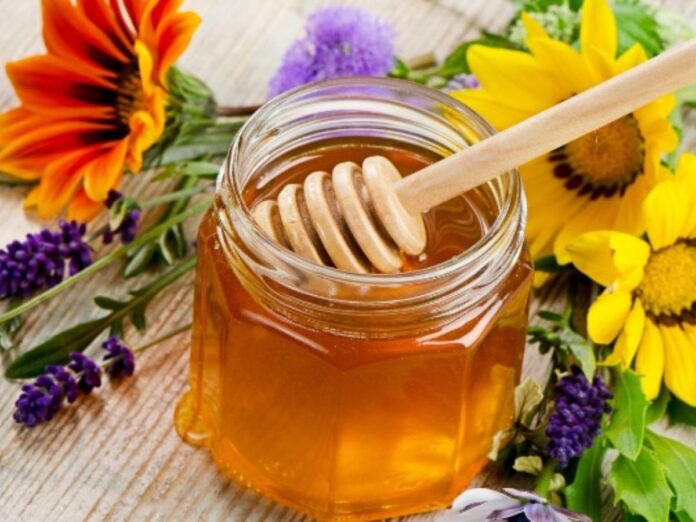New Delhi (India), February 1: That jar of liquid gold you bought a while back has now solidified into a grainy paste. Don’t worry – This natural phenomenon known as crystallization occurs in all pure honey. A little science will go a long way so that you keep enjoying nature’s purest sweetness. Let’s break down exactly what’s happening behind the grainy texture and simple tricks to handle crystallization.
How Crystallisation Occurs?
Honey sometimes takes on a semi-solid state known as crystallized or granulated honey. This natural phenomenon happens when glucose, one of the main natural sugars of honey (GLUCOSE & FRUCTOSE), spontaneously precipitates out of the supersaturated honey solution. Crystallization is a natural process and not a sign of adulteration or spoilage. Honey crystallizes because it is a supersaturated solution. This supersaturated state occurs because there is so much natural sugar in honey (more than 70%) relative to the water content (often less than 20%). Glucose tends to precipitate out of solution and the solution changes to the more stable saturated state. The monohydrate form of glucose can serve as seeds or nuclei which are the essential starting points for the formation of crystals. Other small particles, or even air bubbles, can also serve as seeds for the initiation of crystallization.
Factors Affecting Crystallization of Honey:
Many factors influence the crystallization of honey. Some batches of honey never crystallize, while others do so within a few days of extraction. The tendency of honey to crystallize depends primarily on its fructose & Glucose ratio and moisture level. The proportions of these two sugars vary with the floral origin of honey. It’s the glucose that crystallizes, so some types of honey are more resistant to crystallization because they have low glucose. e.g., Mustard, Alfalfa and clover honeys crystallize quickly; maple, tupelo, and blackberry & Litchi honeys crystallize slowly.
Some honeys crystallize uniformly; some will be partially crystallized and form two layers, with the crystallized layer on the bottom of the jar and a liquid on top. Honeys also vary in the size of the crystals formed. Some form fine crystals and others large, gritty ones. The more rapid honey crystallizes, the finer the texture will be.
The overall composition of honey, which includes natural sugars like glucose, fructose and more than 180 identified substances such as minerals, acids and proteins, influences crystallization. Additionally, crystallization can be stimulated by any small particles – dust, pollen, bits of beeswax or propolis, air bubbles– that are present in the honey. These factors are related to the type of honey and are influenced by how the honey is handled. Storage conditions–temperature, relative humidity and type of container–may also influence the tendency of honey to crystallize.
Can crystallization be avoided?
Pure honey crystallizes because of its natural chemical composition. But there are a few things you can do to delay the crystallization. Where you store honey can make a big difference in how quickly it will crystallise. Low temperatures will encourage quicker crystallization, so don’t put honey in the fridge!
Here’s what to do if honey crystallizes:
- Warm it up (gently). Place your container of honey in a larger bowl and fill that outer shell container with warm water. Do not use boiling water and avoid taking the honey out of the container and placing it in a saucepan with direct heat.
- Remove the honey from the warm water bowl and stir it slowly. If there are still granules, put it back in for a few more minutes.
- Repeat this process until you remove the grainy consistency in your honey. It could take a while to get back to a smooth consistency.
While you may prefer your honey in golden liquid state, but did you know that crystallized or generally referred as creamed honey is quite in demand worldwide. Having the texture of butter, finely granulated honey makes an exceptional spread.



